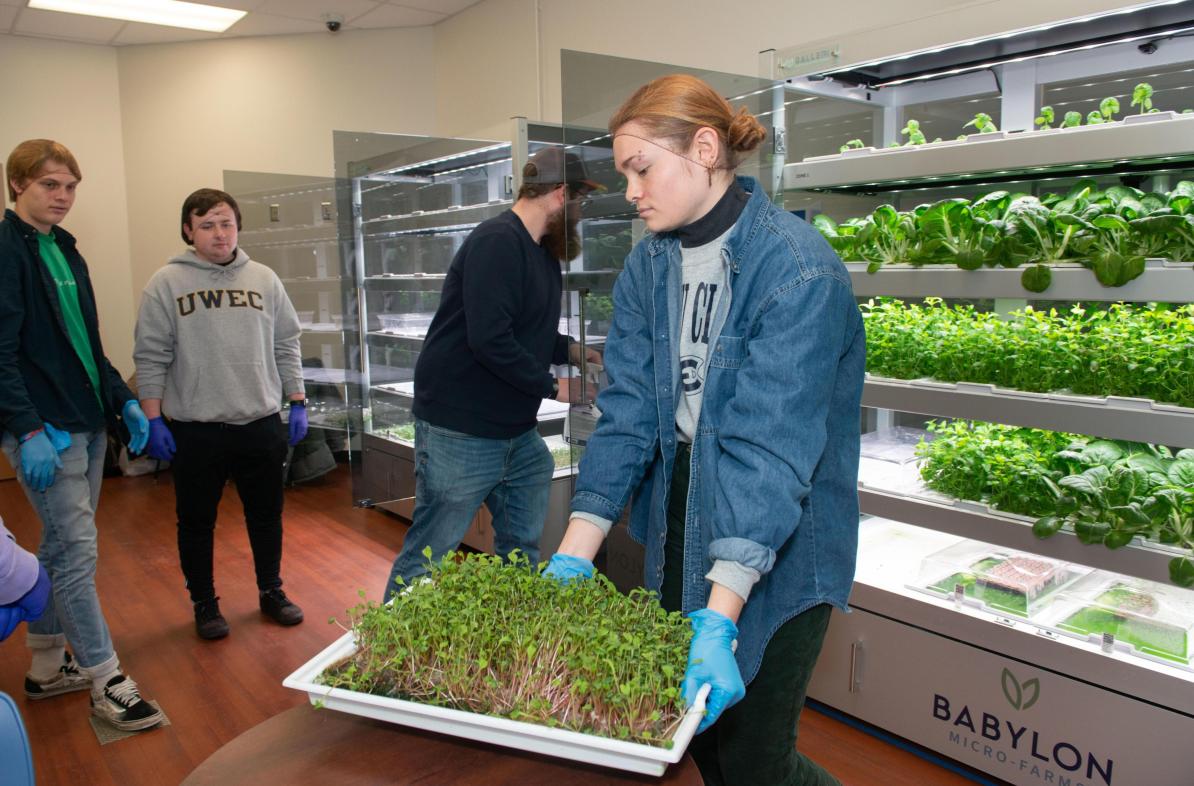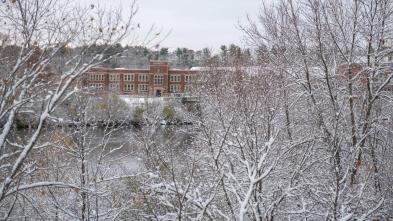The 2026 edition, released Oct. 21, includes UW-Eau Claire among 388 universities and colleges in the U.S. and 17 other countries that The Princeton Review considers environmentally responsible. The Princeton Review chose the (unranked) list of schools based on a survey of administrators and students attending the colleges about their “green” campus experiences.
As a group, the 388 schools selected have highly impressive "green" statistics and share the following traits:
- 18% or more of their energy comes from clean and renewable sources.
- 38% or more of their waste is diverted from incinerators or solid-waste landfills.
- 94% have a sustainability officer.
- 98% offer a sustainability focused undergraduate major or degree.
Students lead green efforts on campus
UW-Eau Claire students have long held strong support of green practices across all parts of campus, voting in recent years to push for gold-level certification in the Leadership in Energy and Environmental Design (LEED) system in the construction of The Sonnentag Complex, the state-of-the-art event and athletics center that opened in fall 2024.
Student initiatives are usually incubated through the Student Office of Sustainability (SOS), and co-director Kristen O’Brien is delighted and not surprised to see UW-Eau Claire recognized again by The Princeton Review.
“The student group in the SOS has done incredible work to promote sustainability and student engagement and involvement,” says the senior ecology and environmental biology major, citing both The Sonnentag and the new Science and Health Sciences Building currently under construction as examples.
“SOS has also worked to create a new food recovery program on campus to combat waste and food insecurity, as well as a current initiative, PLAN, to eliminate/reduce plastic waste. SOS also hosts frequent events that encourage students to learn more about sustainability and become involved themselves.”
According to Lily Strehlow, campus sustainability coordinator, the food recovery and free food alert programs are continuing past their pilot semesters. Initial statistics from the pilot for fiscal year 2025 stand at:
- More than 1,000 meals packaged and sent to the food pantry.
- Over 700 pounds of food repackaged.
- 20-plus free food alert events for students.
In addition, Strehlow reports that The Sonnentag's energy emissions moving forward will be 100% offset by the Chippewa Sun solar array in Hallie, which came online in April. Students in the environmental public health program also contribute to The Sonnentag’s WELL Heath-Safety Rating by taking regular water and air quality measurements, certifying that human wellbeing is centered in the building’s operations.



